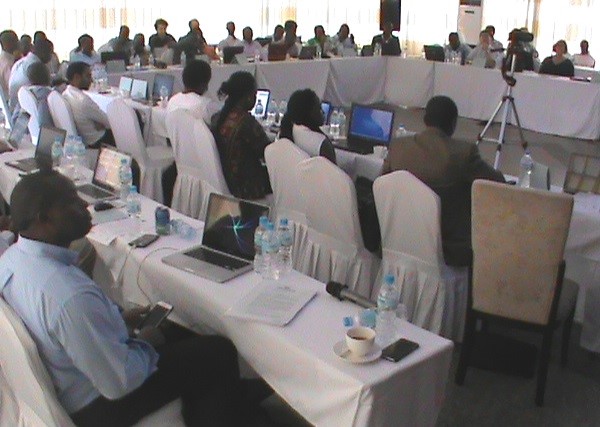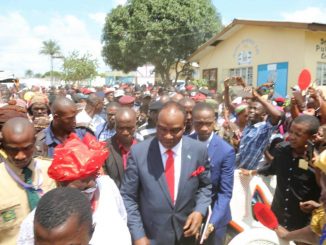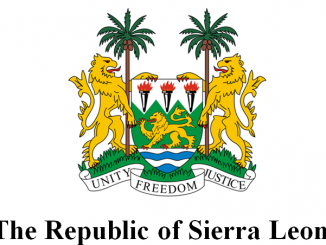
By Jonathan Abass Kamara and Kadrie Koroma
The WHO Country Representative, Dr. Anders Nordstrom has said that we need credible data in the fight to reduce maternal and child morbidity and mortality in Sierra Leone.
WHO Country Representative, Dr. Anders Nordstrom
Addressing a joint International Interhealth Health Information System Interoperability Academy Workshop with the Ministry of Health and Sanitation at the Bintumani conference hall in Freetown, Dr. Nordstrom underscored the importance of data to promote maternal and child health, noting that Sierra Leone has been ranked as one of the countries with the worst indicator on maternal and child mortality, adding that we can now build on the lessons learned from the Ebola outbreak on the importance of data as evidently seen on surveillance, contact and other key areas for a resilient health system.
Participants at the workshop
Data, Dr. Nordstrom said makes system work in decision making and governance, and lauded the Directorate of Planning, Policy and Information in the Ministry of Health for the progress seen on the development of the Health Information System, describing the event as appropriate and timely to strengthen district health emergencies and data management for the three Ebola affected countries: Liberia, Guinea and Sierra Leone.
He thanked the United States government for supporting the process, and reiterated WHO continued support to the country’s leadership, the government and people of Sierra Leone at all times.
The Director of Policy, Planning and Information, Dr. Samuel Kargbo said his Directorate acknowledged the need for increased availability and timely access to quality health data with a view to improving the health of the nation.
He reiterated the Ministry of Health and Sanitation vision to create a unified national architecture for its health information systems, consistent with international best practices that would eventually allow all of the health information systems to communicate effectively with one another and work concertedly to support the Health Ministry’s delivery goals.
Dr. Kargbo advocated for the support of WHO and health development partners to back the transition process, and assured participants from the various countries: Liberia, Kenya, Nigeria, Geneva and others of his Directorate commitment to the vision, strategy and the legacy of health improvement.
The Director on behalf of the Ministry and the government expressed profound gratitude and appreciation to UNICEF, e-Health Africa, World Vision, Goal, JICA, USAID, US Centre for Disease Control (CDC) and other key stakeholders including NGOs to achieve the desired goal.
He noted that Health Information Systems are critical not only for data and measurement, but also for delivering on universal health goals, ensuring better health outcomes and the ability to protect, detect and respond to emerging health priorities.
Making his statement USAID Senior Systems Engineer, Mr. Matthew Hulse noted the laudable work done during the three days session, describing the contributions from participants as a resourceful catalyst for a strong Health Information System Strategy for Sierra Leone.
Other highlights from the workshop include statement from the Director of Human Resource for Health in the Health Ministry, Mr. Samuel Coker, and the unanimous adoption of the Declaration, titled the 2016 Bintumani Health Information System Declaration.





